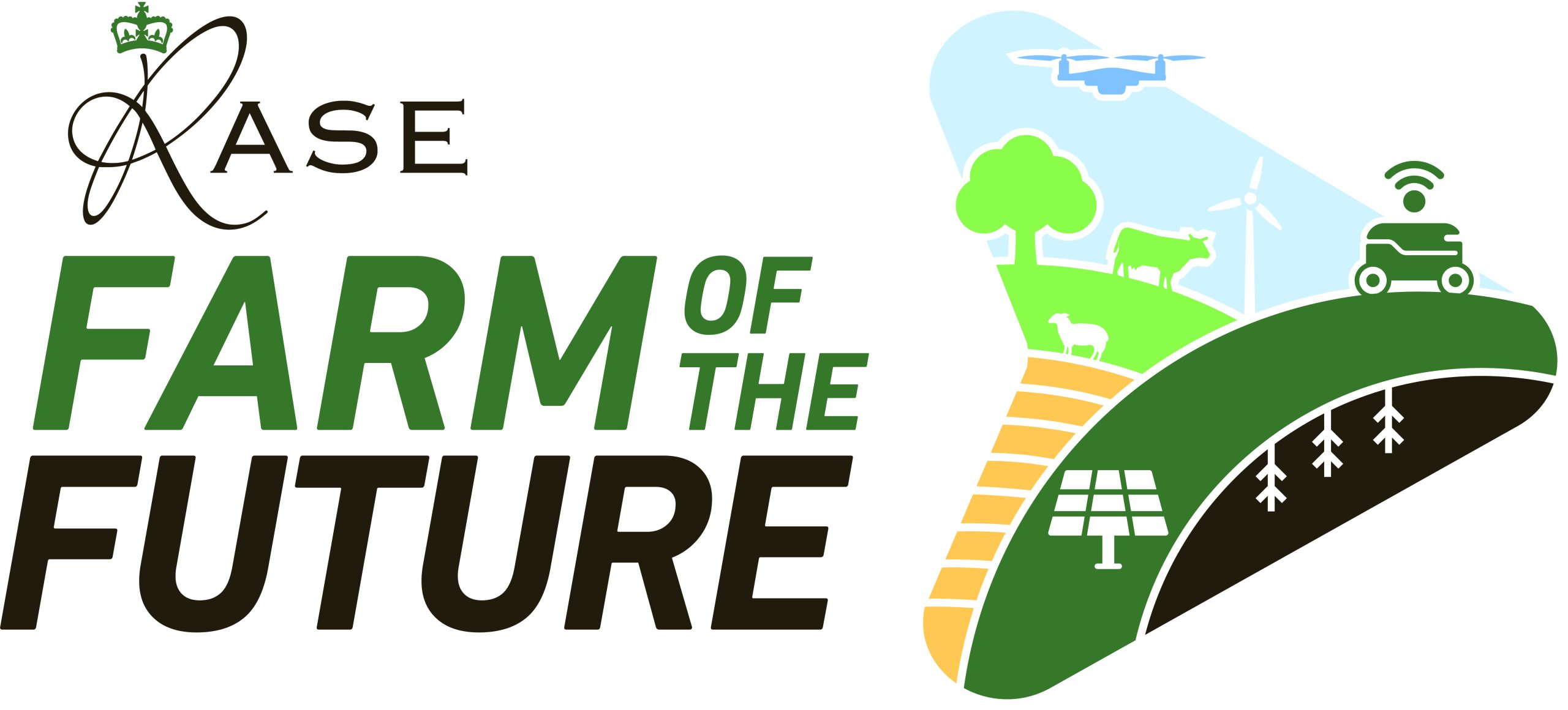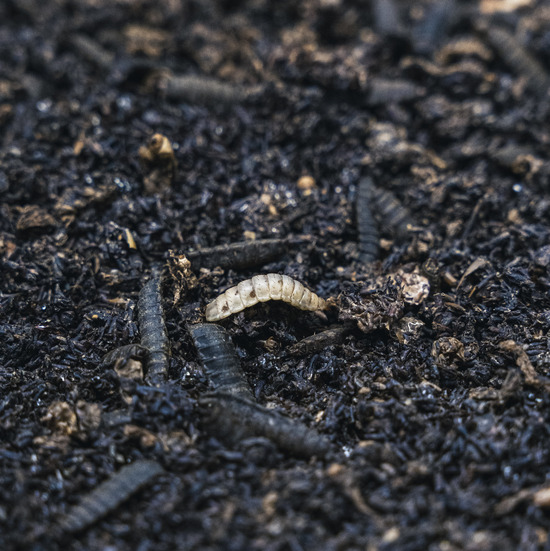Insect farming offers a way to upgrade low value organic materials to a protein rich product.
The sector has grown significantly in the UK over the past 10 years, along with the number of companies developing products and technologies.
A recent Farm of the Future webinar brought together Mike Boulton from Ento U.P, Thomas Farrugia from Beta Bugs and Larry Kotch from Flybox to discuss diversification into insect farming. The session was chaired by Nick Rousseau from the UK Edible Insect Association, which is building an insect farming community of practice to include experts, technology providers, retailers, product developers and manufacturers, alongside farmers and anyone else with an interest in insect farming.
The speakers discussed the logistics of insect farming, the potential markets for insect farmers to sell into and how we can use the protein produced in day-to-day life.
Why choose insect production?
Insects are a very high protein source. They are resource efficient, particularly in terms of water and land, they also produce less methane than other forms of protein. Insects can be fed a huge variety of different substrates; they are amazing converters of anything organic into protein.
As they can be eaten by both humans and livestock, insects provide options to add to and complement other protein sources.
Insect farming represents a forward-thinking solution to some of the world’s most pressing challenges, including food security, sustainability, and climate change. As technology and consumer acceptance grow, it’s likely to become a key part of the future food system.
What insects can be farmed?
Crickets, mealworms and black solider fly are produced for human, pet and livestock food. Each has potential in multiple markets and each result in a good amount of frass, which is an excellent fertiliser product.
Mealworm farming
Ento U.P is a company that specialises in sustainable insect farming, focusing on organic mealworm farming. Their products range from live mealworms for specific markets to organically bred mealworms for human consumption. Additionally, they produce organic fertiliser as a byproduct of the mealworm farming process. This fertiliser is created from a mixture of mealworm waste and shredded skin cells, and it is rich in nutrients, making it ideal for enhancing plant growth and boosting harvest yields.
Key features of Ento U.P’s operations:
Insect choice: Mealworms were chosen because they are wingless, easy to manage, and produce high-quality, complete proteins suitable for both animals and humans.
Farming process: The beetle larvae (mealworms) are harvested just before they pupate, ensuring the best protein quality.
Sustainability: The farm operates organically, with power sourced from solar energy and smart technology integrated into containers and smaller farming units. This results in very low emissions, making their protein and fertiliser products highly sustainable.
Product range: They sell live mealworms through retail and e-commerce platforms. Their customer base includes:
- Wild bird enthusiasts
- Domestic poultry owners
- Exotic pet owners (reptiles, fish)
Future plans: Ento U.P aims to grow its business and further engage with universities and agricultural colleges. This collaboration would support research efforts to explore new markets and enhance sustainability initiatives.
Black soldier fly farming
The black soldier fly (BSF) is a highly efficient insect species for sustainable farming. Its lifecycle consists of several stages: flies → eggs → juvenile larvae → larvae → pre-pupae → pupae. These insects are increasingly recognised for their potential in producing high-protein feed and contributing to waste management. Key benefits of BSF farming include:
- Rapid growth: Black soldier flies are fast-growing and highly efficient in converting feed.
- Versatile diet: They can consume a wide range of organic materials, making them adaptable to various substrates.
- High protein yield: BSF larvae produce a protein-rich product that can be used in animal feed.
- Low carbon footprint: BSF farming generates protein with minimal environmental impact.
- Farm benefits: In addition to producing feed, frass (the insect’s byproduct) can be used as a natural fertiliser, improving plant health and soil quality.
Juvenile larvae farming process
- Quick turnaround: BSF larvae grow rapidly, requiring only 7 days to mature.
- Feedstock: The consistency of the feed should resemble porridge, with high protein content to optimise larvae growth. A constant supply of feedstock on consistent feedstock should be available.
Beta Bugs is a genetics focused biotechnology company that breeds genetically improved BSF which are suitable for large scale production.
Insect farming as a waste management solution
Insect farming, particularly with black soldier flies, offers an innovative and sustainable waste management solution. Flybox specialises in creating systems that use BSF to turn organic waste into valuable products. Their technology allows organisations that handle large quantities of organic waste to set up modular, affordable insect farming systems. The benefits include:
- Waste-to-feed conversion: Organic waste can be repurposed as feed for BSF, significantly reducing the volume of waste and producing high-value protein and frass in return.
- Cost efficiency: BSF farming systems are designed to be economically viable, with low expenditure thanks to well-regulated vertical farming setups and efficient airflow systems to maintain optimal conditions.
- Automation and labour: Automation options are available, and typically, 1 worker can manage up to 2.5 tonnes of feedstock per day.
BSF larvae and their byproducts have a wide range of applications:
Feed products: Sold as feed for wild birds, exotic pets, dog food, and fishing bait at prices ranging from £700-£1200/tonne.
Frass: This nutrient-rich byproduct is used in agriculture and gardening as a fertiliser, sold for £100-£300/tonne.
Insect farming is an innovative and sustainable solution to meet the growing global demand for protein while addressing environmental challenges associated with traditional livestock farming. It produces high-quality protein with a minimal ecological footprint, combined with its potential to transform industries such as food, animal feed, and waste management, makes it a vital component of the future agricultural landscape.
While challenges remain in terms of regulation and cultural acceptance, the economic and environmental benefits of insect farming position it as a key player in shaping a more sustainable, resilient food system for the future. For more information on diversification into insect farming head to the RASE members resources to watch the webinar recording video.

